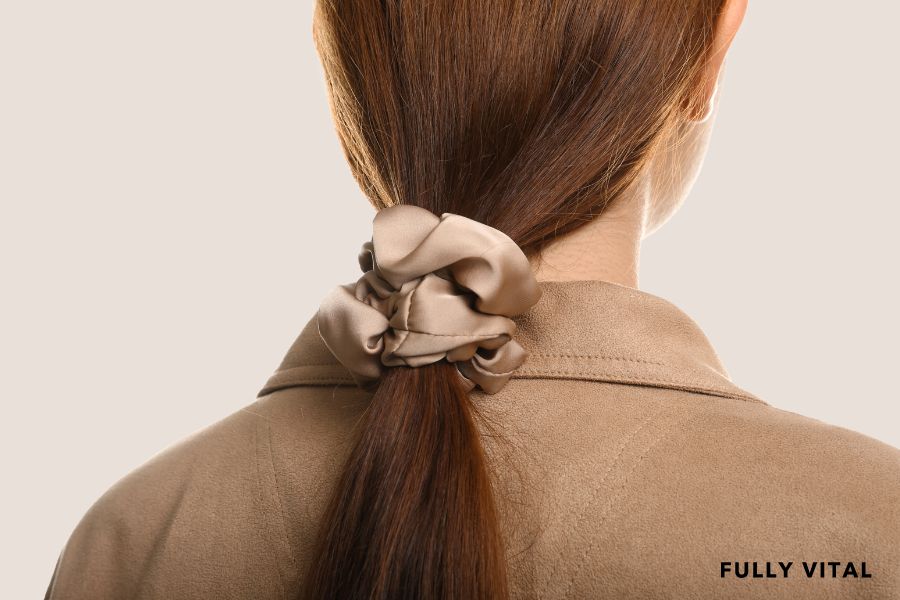Many of us have been guilty of hitting the hay with damp tresses after a late-night shower. But have you ever wondered if this habit is damaging to your hair? Let’s investigate the impact of sleeping with wet hair and explore some potential consequences.
:max_bytes(150000):strip_icc()/wet-hair-GettyImages-1160940618-33d434fe590a4eb09f4ad0c8eb6afff1.jpg)
Credit: www.shape.com
Does Sleeping With Wet Hair Cause Damage?
Some claim that sleeping with damp hair can lead to hair breakage and frizz. The logic behind this argument is that wet hair is more fragile and prone to damage. However, the extent of harm depends on several factors such as hair type and the frequency of sleeping with wet hair.
The Truth About Sleeping With Wet Hair
Contrary to popular belief, sleeping with wet hair isn’t necessarily disastrous. The real concern is the potential for mildew and fungal growth on the scalp, stemming from excess moisture trapped in the hair overnight, especially if your hair takes a longer time to dry.
Possible Implications of Sleeping With Wet Hair
Here are some potential issues that may arise from regularly snoozing with damp locks:
- Breakage: Hair is weaker when wet, and the friction between wet strands and the pillow can cause breakage.
- Fungal Infections: The damp environment created by sleeping with wet hair can lead to fungal growth.
- Frizz and Tangling: Wet hair is more susceptible to frizz and tangling, which can be exacerbated during sleep.
- Poor Scalp Health: Excess moisture can potentially compromise the health of the scalp, leading to issues like dandruff and itchiness.
While occasional instances of sleeping with wet hair might not lead to significant damage, repeated occurrences could contribute to the issues mentioned above. Therefore, it’s advisable to allow your hair to dry properly before heading to bed.
Tips for Dealing With Wet Hair Before Bed
If you find yourself in a situation where sleeping with wet hair is unavoidable, consider adopting the following practices:
- Use a Microfiber Towel: Opt for a gentle microfiber towel to absorb excess moisture without causing friction and damage to the hair.
- Avoid Tight Hairstyles: Pulling wet hair into tight styles can lead to stress and breakage. Instead, opt for loose braids or gentle ponytails to prevent excessive tangling and breakage.
- Apply Leave-In Conditioner: A lightweight leave-in conditioner can help to maintain moisture and combat frizz while your hair dries overnight.

Credit: fullyvital.com
Frequently Asked Questions For Is It Bad To Sleep With Wet Hair? Unlocking The Secrets And Myths
Is It Bad To Sleep With Wet Hair?
Sleeping with wet hair is not recommended as it can lead to hair breakage, frizz, and scalp issues.
Can Sleeping With Wet Hair Cause Hair Loss?
Sleeping with wet hair does not directly cause hair loss, but it can weaken the hair shaft and make it more prone to breakage.
Why Should You Avoid Sleeping With Wet Hair?
Avoiding sleeping with wet hair is important to prevent damage to the hair cuticle and fungal growth on the scalp.
How Can Sleeping With Wet Hair Affect Scalp Health?
Sleeping with wet hair can create a damp environment, promoting the growth of bacteria and fungi on the scalp, leading to scalp issues like dandruff.
Conclusion
While the verdict on sleeping with wet hair isn’t entirely black and white, it’s clear that consistently heading to bed with damp locks can potentially lead to various hair and scalp issues. To mitigate any detrimental effects, it’s best to err on the side of caution and ensure that your hair is thoroughly dry before calling it a night.
Your article helped me a lot, is there any more related content? Thanks!